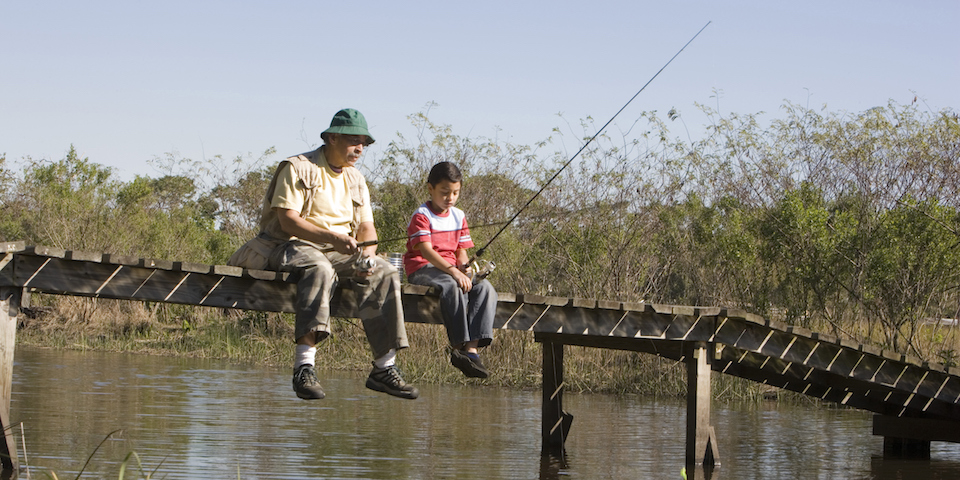9 Personal Skills to Encourage in Children

If you want to your children’s lives to be more fulfilling, encourage your kids to develop personal skills so that they will enjoy life more.
As parents it is our duty to foster a child’s future success. We should use our free time and experiences to help them better understand the world they will be facing as adults.
Compassionate. Visit zoos to discuss humane practices in how we should be caring for animals. Compassion for humans can be learned and appreciated through shared community service projects that encourage children to understand and be tolerant of people in unfamiliar circumstances. Seek opportunities to assist not only people with different physical abilities, but also those from dissimilar cultural, racial and socioeconomic backgrounds. Ramp up the fun factor by attending community events that celebrate ethnicities different from the grandchild’s.
Civic-minded. Grandchildren first learn the importance of affecting local and global issues by witnessing adults in their life doing so. Model the desired behavior, then seek age-appropriate opportunities for engagement that interest the child. That could mean seeking city-council support for a new neighborhood playground or encouraging a recycling program in the school cafeteria. Success with local issues may encourage kids to tackle global issues.
Arts-focused. Foster appreciation for all art forms by exposing your grandchild to varied artistic expressions and events, from street fairs and museums to performances and artist-in-residence opportunities. Consider art in the ordinary, too—architecture, nature, weather events, fashion.
Travel-minded. Spark a young grandchild’s curiosity about the world near and far with magazine subscriptions (National Geographic for Kids, is a great one!), travel shows on television—those for youngsters and adults—as well as short trips that whet their appetites for longer ones. And don’t forget to send postcards from your own travels then share photos with grandkids when you return from your adventures.
Food-aware. Teaching young grandchildren about healthy and responsible food choices encourages them to be more informed about food as adults. Visit farmer’s markets together then together cook the goodies you’ve gathered. Take grandchildren on tours of working farms so they learn where foods come from. Grow a garden, too. Short on space? Try container gardening or growing herbs indoors. Herbs for homemade pizza—basil, oregano, thyme—are a yummy introduction.
Self-loving. Show interest in a grandchild’s abilities by turning compliments into conversations. Rather than saying, “I love the drawing you made me,” ask your grandchild why he chose that particular color or medium. Instead of praising a granddaughter on how well she performed in the school play, ask what she thought were her best moments. Such questions provide opportunities for your grandchild to consider her unique offerings.
Encourage grandchildren to do the same for others, too, by pointing out opportunities for grandchildren to celebrate the unique talents of friends and family.
Critical thinkers. This essential skill requires analyzing and evaluating information, looking below the surface, predicting outcomes and more. Grandparents have a unique hand in developing this skill simply because of their history and generational differences. Share your family history and personal stories to encourage kids to consider how things used to be, how much things have changed.
Additionally, engage in open-ended conversations with grandchildren. Ask, “Why do you think this happened?” or “What do you think might happen next?” in relation to stories, movies or real-life events. Encourage kids to answer imaginatively by avoiding judgements on their responses. (Be sure to avoid dominating the conversation, too!)
Responsible for their words and actions. Just as it was as parents, part of our job as grandparents is to help prepare children for adulthood. Use stories from your own life to highlight teachable moments, events that led you to grasp important societal norms and expectations. While out and about with grandkids, point out ways people help one another (or should help) as well as how actions and behaviors, both negative and positive, affect others.
Empowered. Kids and people in general are empowered by success in tasks, skills, making decisions that turn out well. Grandparents can ideally encourage the skill because we often have more time and patience to allow grandchildren to perform tasks at their own pace. Seek ways to allow grandchildren opportunities to perform age-appropriate tasks alongside chores and activities you’re performing. Chores, crafts, work of most any sort likely have some small (or large) component a child could successfully complete.
